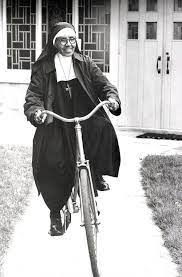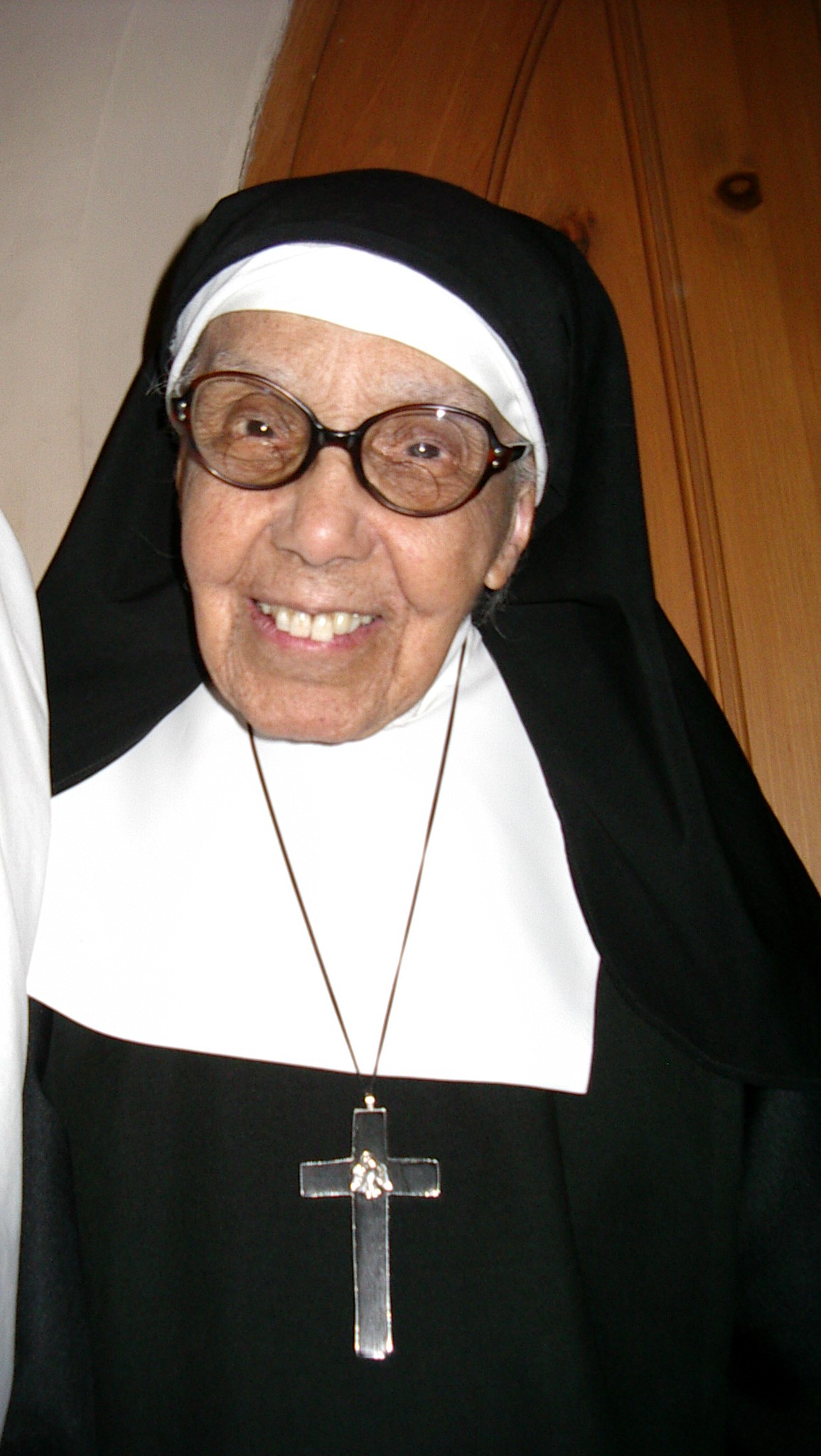By. Sr. Constance Joanna, SSJD.
Job 38.1-11 Psalm 107.1-3, 23-322 Corinthians 6.1-13 Mark 4.35-41
Tell me the stories of Jesus, I love to hear,
Things I would ask him to tell me if he were here:
Scenes by the wayside, tales of the sea,
Stories of Jesus – tell them to me.
I remember one breath-stopping moment in an interview I was conducting, along with one of my clergy colleagues. We were talking to a candidate for priesthood in the diocese of Toronto and one of the standard questions we always asked was “Tell us about your favourite parable of Jesus.” The interviewee thought for just a moment and then launched into a beautiful reflection of Jesus’ healing the man born blind.
Was this a mark against this candidate for Holy Orders who didn’t know the difference between a parable and one of Jesus’ healing miracles? As it turned out, it was not. We gently pointed out that they had just done a great job of sharing in some depth with and with real understanding of the gospel a favourite story of Jesus even if a “true” story rather than a parable.
Well, the last few weeks as we’ve been following the stories of Jesus in Mark’s gospel, we’ve been reflecting on parables as stories, stories as parables, and some great story-tellers in the tradition of Jesus. But many of the stories told by Stuart McLean or Garrison Keillor or Dean Robert Willis in Canterbury or many others are based on real life. Stories are about narrative, whether “real” or intentionally made-up (though I would argue there is not such thing as a purely made-up story since all stories come out of our experience in one way or another.) What’s important about the stories told of Jesus is how they reflect the deep truth of God, how they touch our hearts and help us absorb the truth and then pass it on.
One of the consummate story-tellers in our community history was Sr. Constance Murphy, and I was thinking of her this week when I was reflecting on the gospel for today. She published her memoirs – stories of her life – in 1997, and the title she gave to the book was Other Little Ships. I hadn’t read it for some years, and I started musing over why she would have chosen that phrase from today’s gospel as the title of her book.
So I went back and started re-reading it. The whole book is full of wonderful stories of events that shaped her faith and her life – many of them delightfully humorous. But perhaps the best one in the book is right at the beginning. She grew up in a large intergenerational family made up of siblings and cousins, aunts and uncles, parents and grandparents from both the maternal and fraternal side of her family. They all left the very hot, humid city of Baltimore each year to spend the summer months on an uncle’s farm in Maryland. There was a tiny community church which the family attended, but it was so small that the enlarged summer family couldn’t all fit into the church on a given Sunday. So they took turns – one Sunday half the family would go to church while the other half had a service in the big living room of the farmhouse, with the service recorded on an old phonograph that used cone-shaped devices – this was before the days of vinyl records.
On this particular Sunday, Sr. Constance recalls a story I’m going to read for you, and as we listen to her, we will know both why today’s passage from Mark’s gospel was so important to her and her vocation in this Sisterhood, and we’ll also know why she chose the title she did for her book of memoirs:
On Sunday, when it was my turn to stay home, the service on the phonography was based on Mark 4, verses 35 to 41 (King James Version):
“And the same day, when the even was come, he saith unto them, Let us pass over unto the other side. And when they had sent away the multitude, they took him even as he was in the ship. And there were also with him other little ships. And there arose a great storm of wind, and the waves beat into the ship, so that it was now full. And he was in the hinder part of the ship, asleep on a pillow: and they awake him, and say unto him, Master, carest thou not that we perish? And he arose, and rebuked the wind, and said unto the sea, Peace, be still. And the wind ceased, and there was a great calm. And he said unto them, Why are ye so fearful? how is it that ye have no faith? And they feared exceedingly, and said one to another, What manner of man is this, that even the wind and the sea obey him?“
I was about seven or eight years old. It was a moving sermon, but what I’ll always remember was that the passage told of Jesus being asleep on a pillow in the hinder part of a ship in the midst of a storm – one of those suddenly violent storms, followed by a calm. The minister read well and one could see the whole episode. I remember leaving the service with the words ringing in my ears, “What manner of man is this?” and “asleep on a pillow”! Fancy! How could He possibly sleep in the storm!
Another sentence he read quite simply, “And there were also with Him other little ships.” Our father mentioned this line, reminding us that a lot of folks profited by Jesus’ rebuking the wind and the waves. Over the years that same line of Scripture has returned to me repeatedly and has shown me that every experience of Grace, in some sense, extends to other little ships, that every time one does something for another, other people indirectly benefit.
I feel somehow that I have been especially privileged to profit by two people, who in the footsteps of Christ, brought peace and calm in the face of storm and tempest. The first is Hannah Grier Coome, who in 1884 founded the Sisterhood of St. John the Divine, the first Anglican Women’s Community in Canada. Like all novices I read and enjoyed A Memoir of the Life and Work of Hann Grier Coome (Oxford, 1933) by Sister Eleonora, one of the earliest sisters.
The second is my paternal grandfather, John Henry Murphy, who in 1892 founded the newspaper called The Afro-American, helping to bring peace in the dark times after the abolition of slavery and reconstruction.
Both of them joined the lists of those who take up the words of the Christ, “Peace, be still,” and they helped to foster what those words pointed toward, “And there was a great calm.” Interwoven were their courses: Hannah Coome’s in Toronto, Canada, in the fields of learning, healing, and serving God; his in Baltimore, Maryland, in the fields, too, of learning, healing, journalism and serving God. In a sense this book is built on the founding and fellowship of a Sisterhood and the found of a newspaper and a family. I am among the “other little ships.” Hannah Coome and John Murphy have sent me on journeys and encouraged me to take risks. (pp. 12-14)
In the reading from Job this morning, we hear how God chastened and humbled Job by reminding him of who actually was the creator of the universe:
“Where were you when I laid the foundations of the earth? . . . On what were its bases sunk, or who laid its cornerstone when the morning stars sang together and all the heavenly beings shouted for joy? Or who shut in the sea with doors when it burst out from the womb?” (v. 4, 7-8)
Sr. Constance reminds us that the same God who made the universe came to us in the person of Jesus – who sometimes caused storms himself with the authorities, but who for us stands as the ultimate peace-giver, and the Word made Flesh whose creativity at creation has implanted creativity in us as well. As Sr. Constance says at the end of her Introduction:
“I believe that everyone could write a story not unlike mine. Every one of us comes of, or from, those who, in some fashion, have said, “Peace” and have brought forth “a great calm.” I beg of you to search the leaves of your book of life. You too will find a story. Then write it.” (p. 18)
And each of us, as Christian women, will tell a story that is also a story of Jesus and a parable of love and peace. So sing along with me if you know the words:
Tell me the stories of Jesus, I love to hear,
Things I would ask him to tell me if he were here:
Scenes by the wayside, tales of the sea,
Stories of Jesus – tell them to me.
Sr. Constance Murphy was born on February 2, 1904 in Baltimore, MD, and died at St. John’s Convent on August 2, 2013 at the exact age of 109½. She herself was a force of nature to be reckoned with, and we sisters today are among the “other little ships” that were with her.





